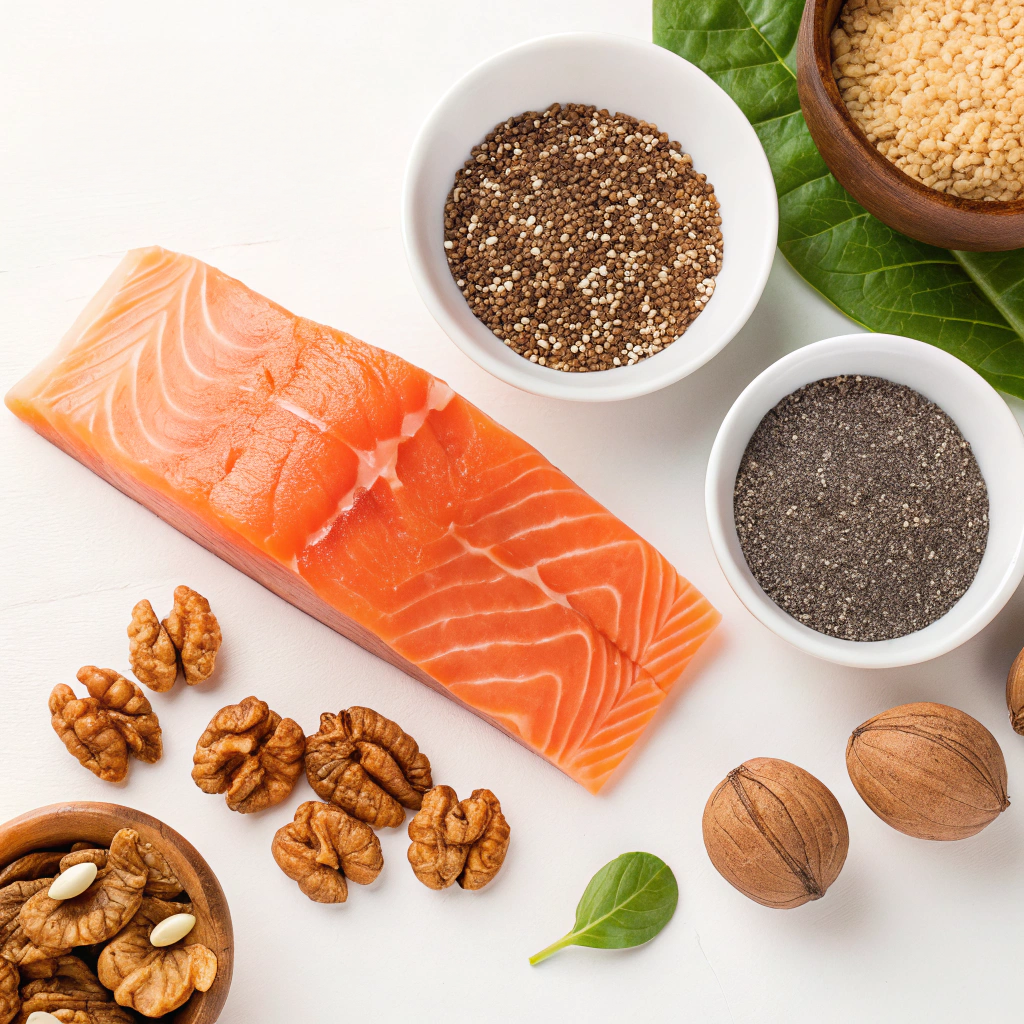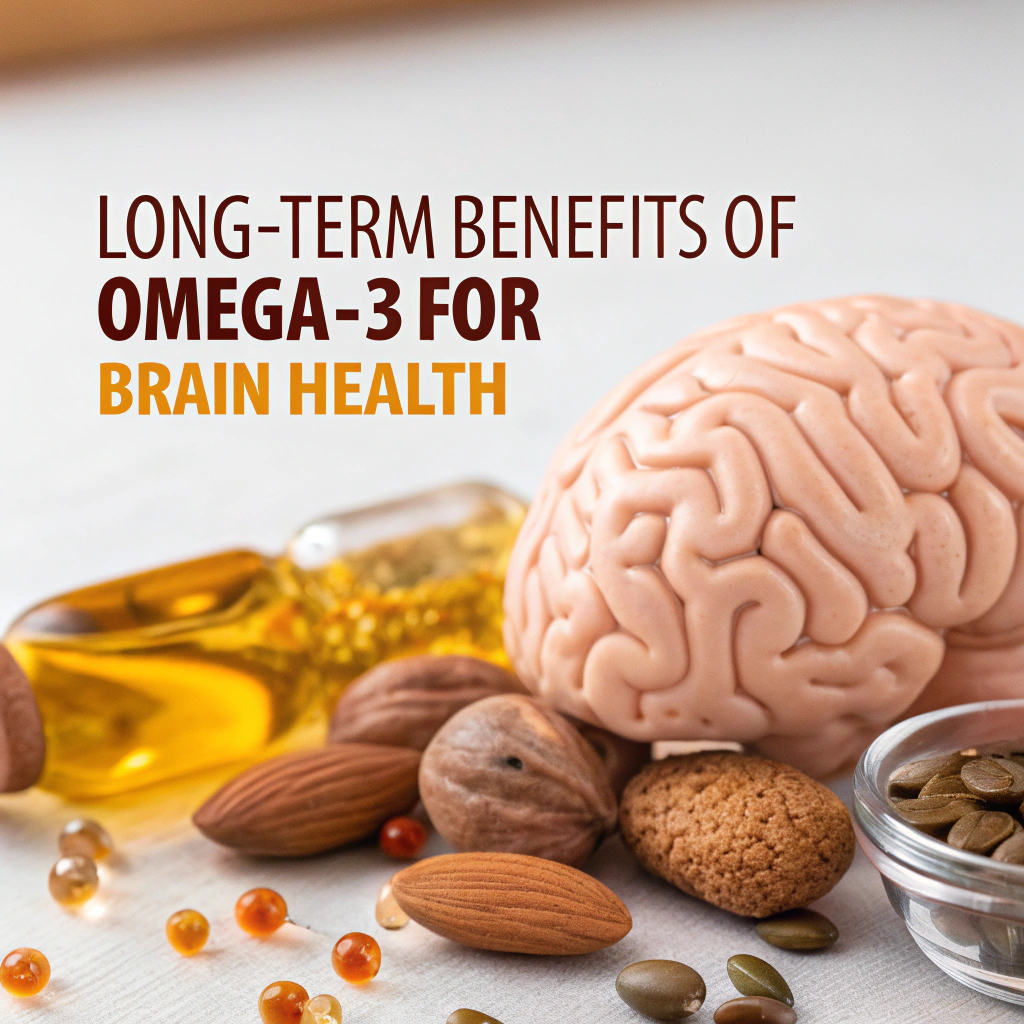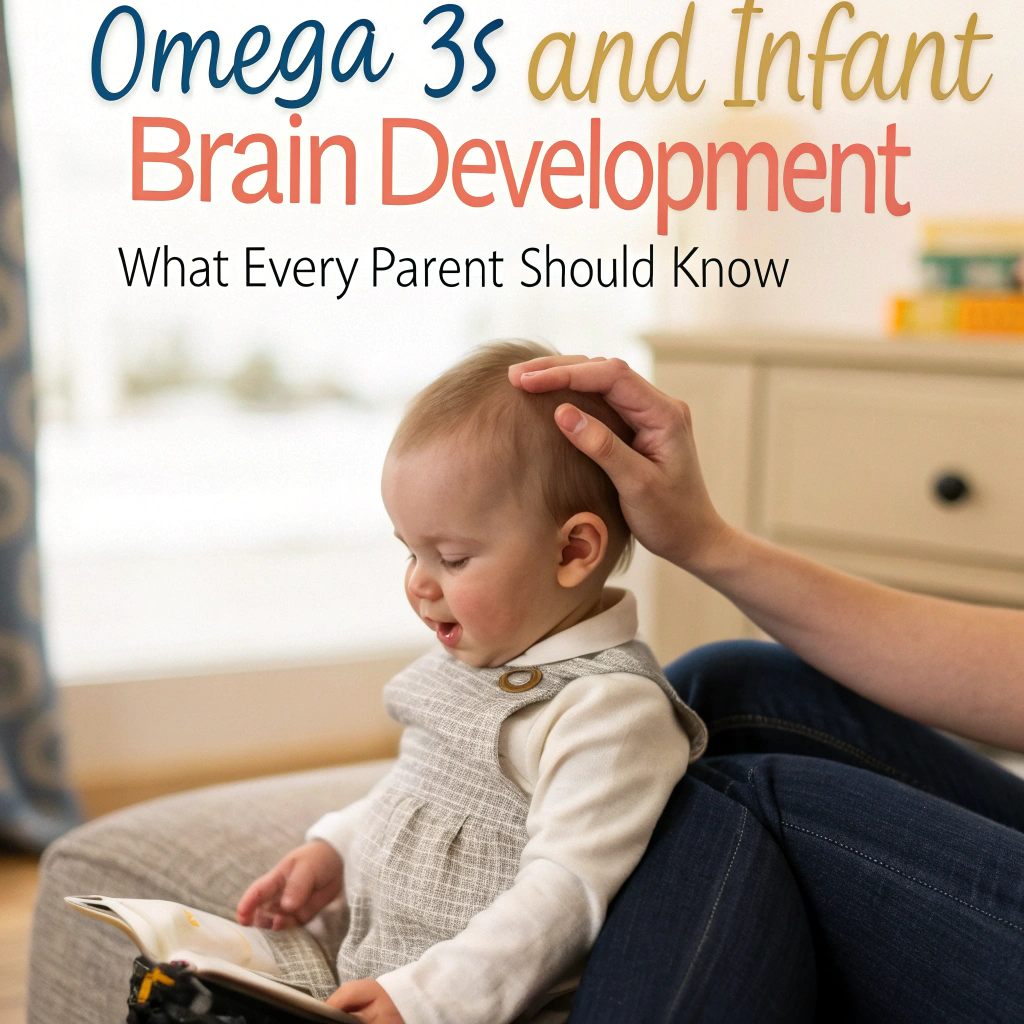Omega-3 fatty acids play a crucial role in infant brain development, making them an essential nutrient for every parent to understand. These healthy fats are vital for building neural connections, supporting cognitive growth, and ensuring overall brain health in babies. In this article, we’ll explore the importance of Omega-3 and infant brain development, providing parents with the knowledge they need to make informed decisions about their child’s nutrition. From the best sources of Omega-3s to practical tips for incorporating them into your baby’s diet, this guide will help you support your little one’s developmental journey.
1. The Science Behind Omega-3 and Brain Development
How Omega-3s Support Cognitive Growth?
Omega-3 fatty acids, particularly DHA (docosahexaenoic acid), are a key building block of the brain. During the first few years of life, a baby’s brain undergoes rapid development, and DHA is essential for forming neural connections and supporting cognitive functions like memory, learning, and problem-solving. Research shows that infants with adequate Omega-3 intake tend to have better attention spans, improved visual acuity, and enhanced cognitive performance.
The Role of DHA in Neural Development
DHA is a major structural component of the brain and retina. It makes up about 15-20% of the cerebral cortex and 30-60% of the retina, highlighting its importance for both brain and eye health. During infancy, the brain grows at an astonishing rate, and DHA is crucial for the formation of synapses, which are the connections between neurons that enable communication within the brain.
Research Findings on Omega-3 and Infant Development
Numerous studies have shown that infants who receive sufficient Omega-3s, particularly DHA, have better cognitive outcomes. For example, a study published in the journal Pediatrics found that children whose mothers consumed adequate DHA during pregnancy and breastfeeding had higher IQ scores and better problem-solving skills. Another study in The American Journal of Clinical Nutrition linked higher DHA levels in infants to improved attention and visual processing.
2. Best Sources of Omega-3 for Infants

Incorporating Omega-3s into Your Baby’s Diet
While breast milk is a natural source of Omega-3s, especially if the mother’s diet is rich in these fatty acids, formula-fed babies can also benefit from fortified formulas. For older infants, introducing Omega-3-rich foods like salmon, chia seeds, and flaxseed can help maintain healthy brain development. Supplements, such as fish oil or algae-based DHA, may also be recommended by pediatricians in certain cases. Always consult your doctor before introducing new foods or supplements to your baby’s diet.
Breastfeeding and Omega-3s
For breastfeeding mothers, consuming Omega-3-rich foods or supplements can directly impact the DHA content of their breast milk. Foods like fatty fish (salmon, mackerel, sardines), walnuts, and flaxseeds are excellent sources. If a mother’s diet is lacking in Omega-3s, her breast milk may not provide sufficient DHA for optimal infant brain development.
Omega-3 Fortified Formulas
For formula-fed infants, many commercial formulas are now fortified with DHA and other Omega-3s to mimic the nutritional profile of breast milk. When choosing a formula, look for one that contains at least 0.2-0.5% of total fatty acids as DHA, as recommended by pediatric nutrition experts.
Introducing Solid Foods Rich in Omega-3s
As your baby transitions to solid foods, you can introduce Omega-3-rich options. Pureed salmon, mashed avocado, and ground flaxseeds are great choices. Always ensure that foods are prepared in a safe, age-appropriate manner to avoid choking hazards.
3. Long-Term Benefits of Omega-3 for Brain Health

Setting the Foundation for Future Success
The benefits of Omega-3s extend beyond infancy. Studies suggest that children who receive adequate Omega-3s during early development may have better academic performance, improved behavior, and reduced risk of developmental disorders. By prioritizing Omega-3 intake during the critical stages of brain development, parents can help set the foundation for their child’s long-term cognitive and emotional well-being.
Cognitive and Academic Benefits
Research has shown that children with higher Omega-3 levels tend to perform better in school. A study published in PLOS ONE found that children who consumed more Omega-3s had better reading and spelling skills, as well as improved memory and attention.
Behavioral and Emotional Benefits
Omega-3s have also been linked to improved behavior and emotional regulation. Children with adequate Omega-3 intake are less likely to exhibit symptoms of ADHD and other behavioral issues. A study in The Journal of Child Psychology and Psychiatry found that Omega-3 supplementation reduced hyperactivity and impulsivity in children with ADHD.
Reduced Risk of Developmental Disorders
Adequate Omega-3 intake during infancy may also reduce the risk of developmental disorders such as autism and dyslexia. While more research is needed in this area, preliminary studies suggest that Omega-3s play a protective role in brain development.
Conclusion
Omega-3 fatty acids are a cornerstone of infant brain development, offering both immediate and long-term benefits. By understanding the science behind Omega-3s, identifying the best sources, and incorporating them into your baby’s diet, you can support your child’s cognitive growth and overall health. Remember, every small step you take today can have a lasting impact on your little one’s future.

